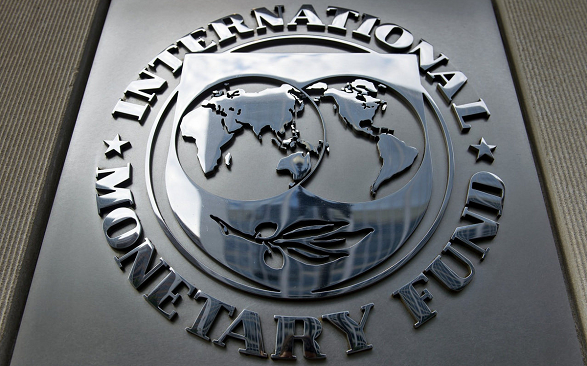Jude Ayua, Associate, Crypto Policy
The Executive Board of the International Monetary Fund (IMF) in February 2023, deliberated on a policy paper, Elements of Effective Policies for Crypto Assets, aimed to serve as a guide to its member countries on certain fundamental elements of “an appropriate policy response” to crypto assets. The objectives of the paper align with the IMF’s mandate of supporting its members toward a stable economy and vibrant financial sector.
In its press release, the Board acknowledged that “efforts to put in place effective policies for crypto assets have become a key policy priority for authorities, amid the failure of various exchanges and other actors within the crypto ecosystem, as well as the collapse of certain crypto assets.” For the Board, “doing nothing is untenable as crypto assets may continue to evolve despite the current downturn.”
The paper, which noted among other things, that “crypto assets have existed for more than a decade, but efforts to put in place effective public policies toward them have moved to the top of the global policy agenda only recently”. Also, the IMF considered that “there are many risks associated with crypto assets, although the significance and relevance of specific risks differ by country circumstances”. It then proposes nine elements (or policy actions) that can help the IMF member-countries “develop a comprehensive, consistent, and coordinated policy response.” The paper aims to “address questions by Fund members on how to respond to the rise of crypto assets and the associated risks,” and focuses on such key policy objectives as “macroeconomic stability, financial stability, consumer protection, and market and financial integrity,” and proposing a framework necessary to ensure the meeting of these objectives.
IMF’s 9 key elements (or policy actions) for crypto assets
The 9 key elements are as follows:
- Safeguard monetary sovereignty and stability by strengthening monetary policy frameworks and do not grant crypto assets official currency or legal tender status.
- Guard against excessive capital flow volatility and maintain effectiveness of capital flow management measures.
- Analyze and disclose fiscal risks and adopt unambiguous tax treatment of crypto assets.
- Establish legal certainty of crypto assets and address legal risks.
- Develop and enforce prudential, conduct, and oversight requirements to all crypto market actors.
- Establish a joint monitoring framework across different domestic agencies and authorities.
- Establish international collaborative arrangements to enhance supervision and enforcement of crypto asset regulations.
- Monitor the impact of crypto assets on the stability of the international monetary system.
- Strengthen global cooperation to develop digital infrastructures and alternative solutions for cross-border payments and finance.
The IMF believes that by adopting these elements, “policy makers can better mitigate the risks posed by crypto assets while also harnessing the potential benefits of the technological innovation associated with it.”
IMF E-Board’s Assessment
Following the proposed elements, Directors of the Board, in its press release, broadly welcomed the proposed framework and its elements, as well as the opportunity to discuss the board paper on elements of effective policies for crypto assets. They agreed that crypto assets have implications for policies that lie at the core of the Fund’s mandate. As stated in the press release, “…the widespread adoption of crypto assets could undermine the effectiveness of monetary policy, circumvent capital flow management measures, and exacerbate fiscal risks. Widespread adoption could also have significant implications for the international monetary system in the longer term.”
Collaboration and synchronization with existing policies
The Directors also agreed on “the need to develop and apply comprehensive regulations, including prudential and conduct regulation to crypto assets, and effective implementation of the FATF standards on AML/CFT”. It noted that “the Fund should work closely to support the regulatory work under the leadership and guidance of standard-setting bodies.”
Ban on crypto assets
Among the key points discussed by the Board was the ban on crypto assets by member-countries. They agreed that “strict bans are not the first-best option, but that targeted restrictions could apply, depending on domestic policy objectives and where authorities face capacity constraints.” A few Directors, however, suggested that outright bans should not be ruled out in peculiar circumstances. The Board noted that “regulation should be mindful not to stifle innovation, and the public sector could leverage some of the underlying technologies of crypto assets for their public policy objectives.”
The IMF, late last year, following the FTX collapse, called for increased regulation of crypto, especially in Africa. Itacknowledged and stressed, however, that “[r]egulating a highly volatile and decentralized system remains a challenge for most governments, requiring a balance between minimizing risk and maximizing innovation.” Among its founding members, China and Egypt have banned cryptocurrency, as well as other members like Bangladesh, Morocco, and Algeria for specific reasons. Perhaps, these countries could reconsider their stand, given the proposed policy actions.
Implementation and prospects
The Board emphasized prioritizing the implementation of the elements where countries are facing “implementation challenges, including weak regulatory institutions”. It stressed that “the pace and sequencing of implementation should be tailored to countries’ respective circumstances.”
The Directors emphasized that “the Fund could serve as a thought leader in further analytical work on rapidly evolving developments in crypto assets.” They also highlighted the importance of “promoting ongoing knowledge sharing and lessons from practical implementation issues in the field.” Importantly also, they hinted that the Fund’s work on crypto assets is expected to remain within the agreed budget augmentation framework. According to the IMF’s budget augmentation framework concerning publicly and privately issued digital money (digital money strategy), the IMF must “move expeditiously to support its members” by widening and deepening “its work on digital money across its core functions, in close collaboration with other institutions, in particular, the Bank for International Settlement”.
Credit: Jude Ayua
Jude, a writer and lawyer, is Associate, Crypto Regulation at Crypto Asset Buyer (CAB).
Discover more from Crypto Asset Buyer
Subscribe to get the latest posts sent to your email.




